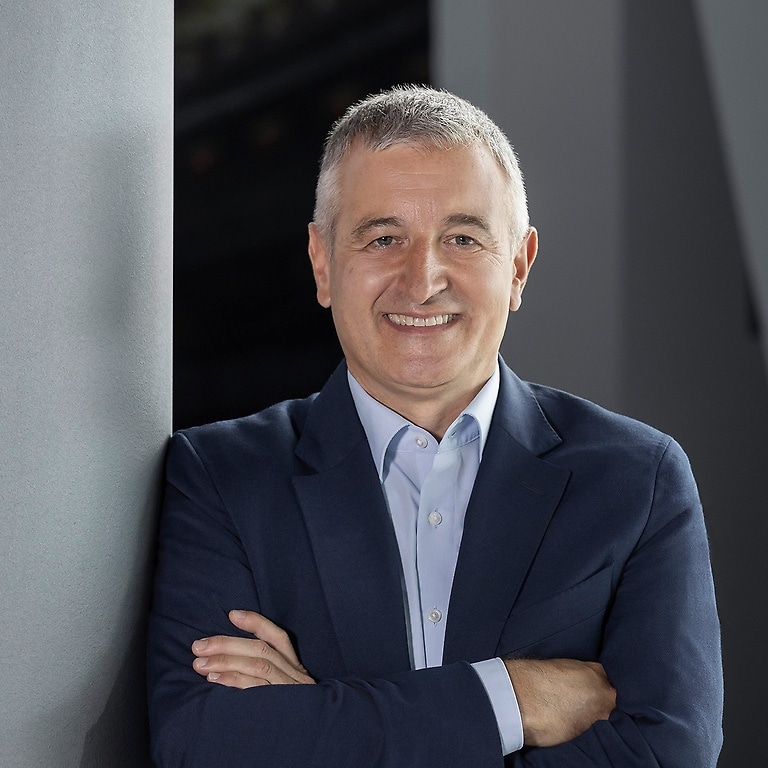For us, social responsibility and respect for human rights are the pillars of responsible corporate governance and key factors for long-term success.
At Mercedes-Benz, we are committed to ensuring that human rights are respected along our value chains, in our Group companies, by our partners and by our suppliers. We want to protect the rights of the people who work on our products – either directly or indirectly. That is why respecting human rights is one of our sustainability focus areas.

For us, the protection of human rights is both a matter of course and an incentive at the same time. This applies not only to our own units, but also to our supply chains: We only want to offer products and services that have been manufactured without violating human rights. Respect for human rights is one of our central sustainability goals. Through our work, we strive to make a real difference and achieve real improvements for local people.
Jürgen Gleichauf
Chief Compliance Officer, Vice President Legal Product & Technology and Human Rights Officer

,xPosition=0,yPosition=1.0)
,xPosition=0.5,yPosition=0)
,xPosition=0.5,yPosition=0)
,xPosition=0.5,yPosition=0)
,xPosition=0.5,yPosition=0)
,xPosition=0,yPosition=0)
,xPosition=0.5,yPosition=0)
,xPosition=0.5,yPosition=0)
,xPosition=0.5,yPosition=0)
,xPosition=0.5,yPosition=0)
,xPosition=0.5,yPosition=0)
,xPosition=0.5,yPosition=0)
,xPosition=0,yPosition=0)
,xPosition=0.5,yPosition=0)
,xPosition=0.5,yPosition=0)